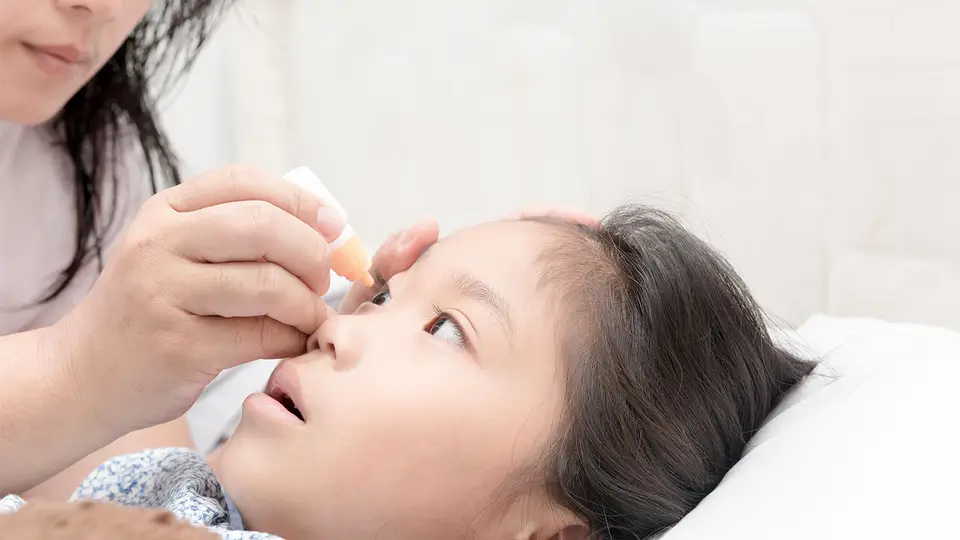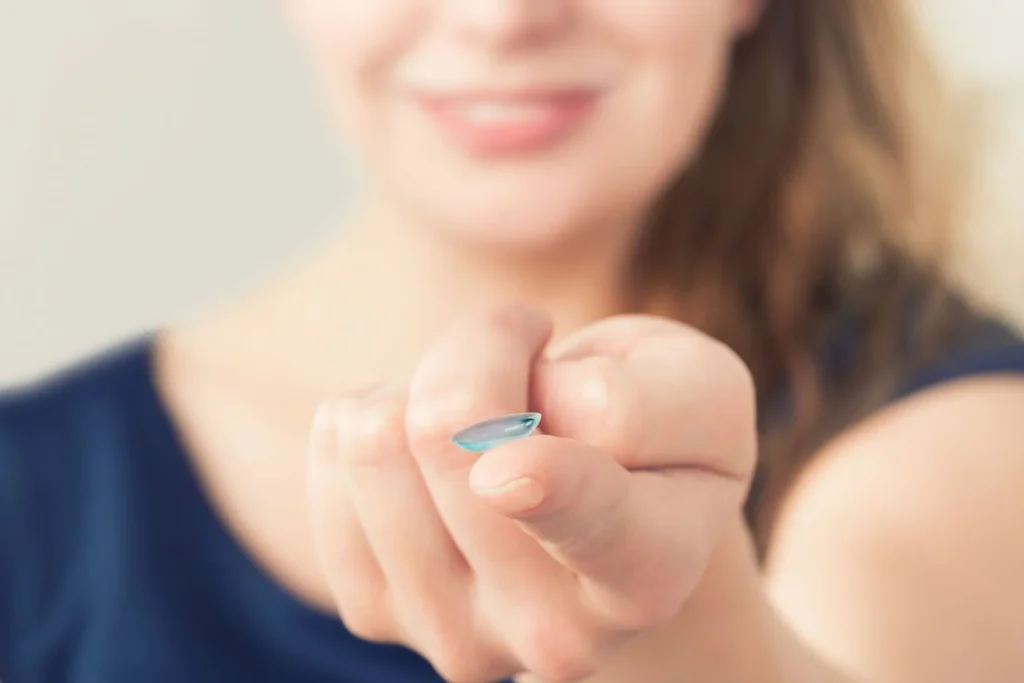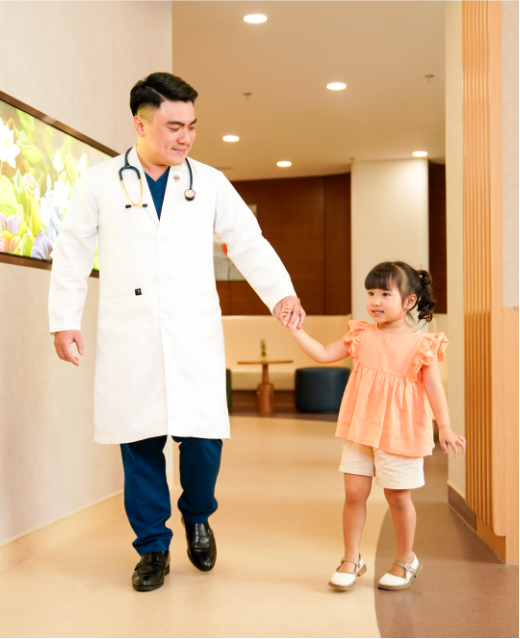
Prima Medical Center Saigon, Eye Diseases
Conjunctivitis (Pink Eye) Treatment
14 September, 2023
Prima Saigon : The treatment of conjunctivitis , or pink eye, depends upon the cause. For this reason, it is important to have the correct diagnosis before treatment begins.

Pink eye treatment:
A topical antihistamine/decongestant eye drop may help relieve viral conjunctivitis irritation. These drops are available without a prescription in most pharmacies. However, particular care must be taken to avoid spreading viral infections from one eye to the other.
Apply drops only to the affected eye and wash hands thoroughly after application. Like cold medicines, this treatment may reduce the symptoms but does not shorten the course of the infection. Another option is to use warm or cool compresses as needed.
- The irritation and discharge may worsen for three to five days before getting better, and symptoms can persist for two to three weeks.
- Bacterial conjunctivitis treatment is usually treated with an antibiotic eye drop or ointment. When started early, therapy helps shorten the duration of symptoms, although most cases resolve spontaneously if no treatment is used.
- Adults are usually treated with an antibiotic eye drop or ointment for five to seven days. Redness, irritation, and eye discharge should begin to improve within 24 to 48 hours. If there is no improvement or the condition worsens within this time, the person should be evaluated by an ophthalmologist.
Contact lens wearers
- People who wear contact lenses should be evaluated by a health care provider before treatment begins; this is to confirm the diagnosis of conjunctivitis and to be sure that another, more serious condition related to contact lens use (an infection of the cornea), is not present.
- People who wear contact lenses should avoid wearing the lenses during the first 24 hours of treatment or until the eye is no longer red. The contact case should be thrown away, and the contacts disinfected overnight or replaced (if disposable).
Children
- Bacterial conjunctivitis may be treated with antibiotic eye drops or ointment. Ointment is generally preferred for young children and those with difficulty applying eye drops. The ointment should be used inside the lower eyelid. Even if the ointment is not applied directly inside the eyelid, it is usually effective because it sticks to the lid and is spread with blinking. Vision may be blurred for up to 20 minutes after use of ointment.
- Return to work/school — The safest approach to avoid spreading viral and bacterial conjunctivitis to others is to stay home until no discharge from the eye(s). However, this is not practical for most students and for those who work outside the home. Most daycare centers and schools require that students receive 24 hours of antibiotic eye drops or ointment before returning to school. This treatment helps to prevent the spread of bacterial conjunctivitis, but is not necessary or helpful for children with viral conjunctivitis.

People who wear contact lenses should avoid wearing the lenses during the first 24 hours of treatment or until the eye is no longer red.
Viral Conjunctivitis
Viral conjunctivitis is similar to a cold because it spreads easily between people. Younger children, who may not remember to wash their hands or avoid touching their eyes, should not attend school until the discharge has resolved. Older students or adults may choose to attend school/work, although they should limit close contact with others.
- In addition, adults who have contact with the very old, the very young, or people with a weakened immune system should avoid these susceptible individuals.
- Nonspecific conjunctivitis treatment — The conjunctiva heals quickly after it is injured, and nonspecific conjunctivitis usually resolves within a few days without any treatment. However, the eye may feel better faster when it is treated with a lubricant, such as drops or ointments. These products are available without a prescription in most pharmacies. Preservative-free preparations are more expensive and are necessary only for people with a severe case of dry eye and those who are allergic to preservatives.
- Preservative-free lubricant drops can be used as often as hourly with no side effects. Regular drops with preservatives should only be used up to six times daily. The ointment provides longer-lasting relief but blurs vision temporarily. For this reason, some people use ointment only at bedtime. Switching brands may be worthwhile if one drop or ointment brand is irritating, since each preparation contains different active and inactive ingredients and preservatives.
- Antibiotic or steroid eye drops/ointments are not recommended unless there is a specific reason they are needed (e.g., a bacterial infection or inflammatory condition). Using these treatments when they are not needed can lead to severe complications. If the symptoms of conjunctivitis do not improve within two weeks, an examination with an ophthalmologist may be recommended.
PINK EYE PREVENTION
Bacterial and viral conjunctivitis are highly contagious and spread by direct contact with secretions or contaminated objects. Simple hygiene measures can help minimize transmission to others Adults or children with bacterial or viral conjunctivitis should not share handkerchiefs, tissues, towels, cosmetics, or bedsheets/pillows with uninfected family or friends.

Hand washing is an essential and highly effective way to prevent the spread of infection. Hands should be wet with water and plain soap and rubbed together for 15 to 30 seconds. It is not necessary to use antibacterial hand soap. Teach children to wash their hands before and after eating and after touching the eyes, coughing, or sneezing.
Alcohol-based hand rubs are a good alternative for disinfecting hands if a sink is unavailable. You should spread hand rubs over the entire surface of hands, fingers, and wrists until dry and several times. These rubs can be used repeatedly without skin irritation or loss of effectiveness.
Our Ophthalmology Team
- Dr THAO Vo, Chief Medical Officer , Prima Medical Center Saigon
- Dr AN Trinh, Head of General Ophthalmology
- Dr BINH Tran, Senior Consultant
- Dr TRAN Nguyen, Consultant
Contact
Prima Saigon is one of the prestigious eye hospitals in Vietnam, recognized by the US embassy in Vietnam.
If you need an pink eye check-up, please have a visit to Prima Medical Center Saigon
- Address: 27 Ky Dong St, District 3, HCMC
- Website: https://primahealth.vn/en/
- Business Hours: 07:30 – 17:00 from Monday – Saturday
- HOTLINE: 0919-209-039 or 1900 – 9115
Prima Saigon recommends that clients should reserve their intended consultation at least three days before their visit for convenience and less waiting time.
Prima Saigon : The treatment of conjunctivitis , or pink eye, depends upon the cause. For this reason, it is important to have the correct diagnosis before treatment begins.

Pink eye treatment:
A topical antihistamine/decongestant eye drop may help relieve viral conjunctivitis irritation. These drops are available without a prescription in most pharmacies. However, particular care must be taken to avoid spreading viral infections from one eye to the other.
Apply drops only to the affected eye and wash hands thoroughly after application. Like cold medicines, this treatment may reduce the symptoms but does not shorten the course of the infection. Another option is to use warm or cool compresses as needed.
- The irritation and discharge may worsen for three to five days before getting better, and symptoms can persist for two to three weeks.
- Bacterial conjunctivitis treatment is usually treated with an antibiotic eye drop or ointment. When started early, therapy helps shorten the duration of symptoms, although most cases resolve spontaneously if no treatment is used.
- Adults are usually treated with an antibiotic eye drop or ointment for five to seven days. Redness, irritation, and eye discharge should begin to improve within 24 to 48 hours. If there is no improvement or the condition worsens within this time, the person should be evaluated by an ophthalmologist.
Contact lens wearers
- People who wear contact lenses should be evaluated by a health care provider before treatment begins; this is to confirm the diagnosis of conjunctivitis and to be sure that another, more serious condition related to contact lens use (an infection of the cornea), is not present.
- People who wear contact lenses should avoid wearing the lenses during the first 24 hours of treatment or until the eye is no longer red. The contact case should be thrown away, and the contacts disinfected overnight or replaced (if disposable).
Children
- Bacterial conjunctivitis may be treated with antibiotic eye drops or ointment. Ointment is generally preferred for young children and those with difficulty applying eye drops. The ointment should be used inside the lower eyelid. Even if the ointment is not applied directly inside the eyelid, it is usually effective because it sticks to the lid and is spread with blinking. Vision may be blurred for up to 20 minutes after use of ointment.
- Return to work/school — The safest approach to avoid spreading viral and bacterial conjunctivitis to others is to stay home until no discharge from the eye(s). However, this is not practical for most students and for those who work outside the home. Most daycare centers and schools require that students receive 24 hours of antibiotic eye drops or ointment before returning to school. This treatment helps to prevent the spread of bacterial conjunctivitis, but is not necessary or helpful for children with viral conjunctivitis.

People who wear contact lenses should avoid wearing the lenses during the first 24 hours of treatment or until the eye is no longer red.
Viral Conjunctivitis
Viral conjunctivitis is similar to a cold because it spreads easily between people. Younger children, who may not remember to wash their hands or avoid touching their eyes, should not attend school until the discharge has resolved. Older students or adults may choose to attend school/work, although they should limit close contact with others.
- In addition, adults who have contact with the very old, the very young, or people with a weakened immune system should avoid these susceptible individuals.
- Nonspecific conjunctivitis treatment — The conjunctiva heals quickly after it is injured, and nonspecific conjunctivitis usually resolves within a few days without any treatment. However, the eye may feel better faster when it is treated with a lubricant, such as drops or ointments. These products are available without a prescription in most pharmacies. Preservative-free preparations are more expensive and are necessary only for people with a severe case of dry eye and those who are allergic to preservatives.
- Preservative-free lubricant drops can be used as often as hourly with no side effects. Regular drops with preservatives should only be used up to six times daily. The ointment provides longer-lasting relief but blurs vision temporarily. For this reason, some people use ointment only at bedtime. Switching brands may be worthwhile if one drop or ointment brand is irritating, since each preparation contains different active and inactive ingredients and preservatives.
- Antibiotic or steroid eye drops/ointments are not recommended unless there is a specific reason they are needed (e.g., a bacterial infection or inflammatory condition). Using these treatments when they are not needed can lead to severe complications. If the symptoms of conjunctivitis do not improve within two weeks, an examination with an ophthalmologist may be recommended.
PINK EYE PREVENTION
Bacterial and viral conjunctivitis are highly contagious and spread by direct contact with secretions or contaminated objects. Simple hygiene measures can help minimize transmission to others Adults or children with bacterial or viral conjunctivitis should not share handkerchiefs, tissues, towels, cosmetics, or bedsheets/pillows with uninfected family or friends.

Hand washing is an essential and highly effective way to prevent the spread of infection. Hands should be wet with water and plain soap and rubbed together for 15 to 30 seconds. It is not necessary to use antibacterial hand soap. Teach children to wash their hands before and after eating and after touching the eyes, coughing, or sneezing.
Alcohol-based hand rubs are a good alternative for disinfecting hands if a sink is unavailable. You should spread hand rubs over the entire surface of hands, fingers, and wrists until dry and several times. These rubs can be used repeatedly without skin irritation or loss of effectiveness.
Our Ophthalmology Team
- Dr THAO Vo, Chief Medical Officer , Prima Medical Center Saigon
- Dr AN Trinh, Head of General Ophthalmology
- Dr BINH Tran, Senior Consultant
- Dr TRAN Nguyen, Consultant
Contact
Prima Saigon is one of the prestigious eye hospitals in Vietnam, recognized by the US embassy in Vietnam.
If you need an pink eye check-up, please have a visit to Prima Medical Center Saigon
- Address: 27 Ky Dong St, District 3, HCMC
- Website: https://primahealth.vn/en/
- Business Hours: 07:30 – 17:00 from Monday – Saturday
- HOTLINE: 0919-209-039 or 1900 – 9115
Prima Saigon recommends that clients should reserve their intended consultation at least three days before their visit for convenience and less waiting time.



